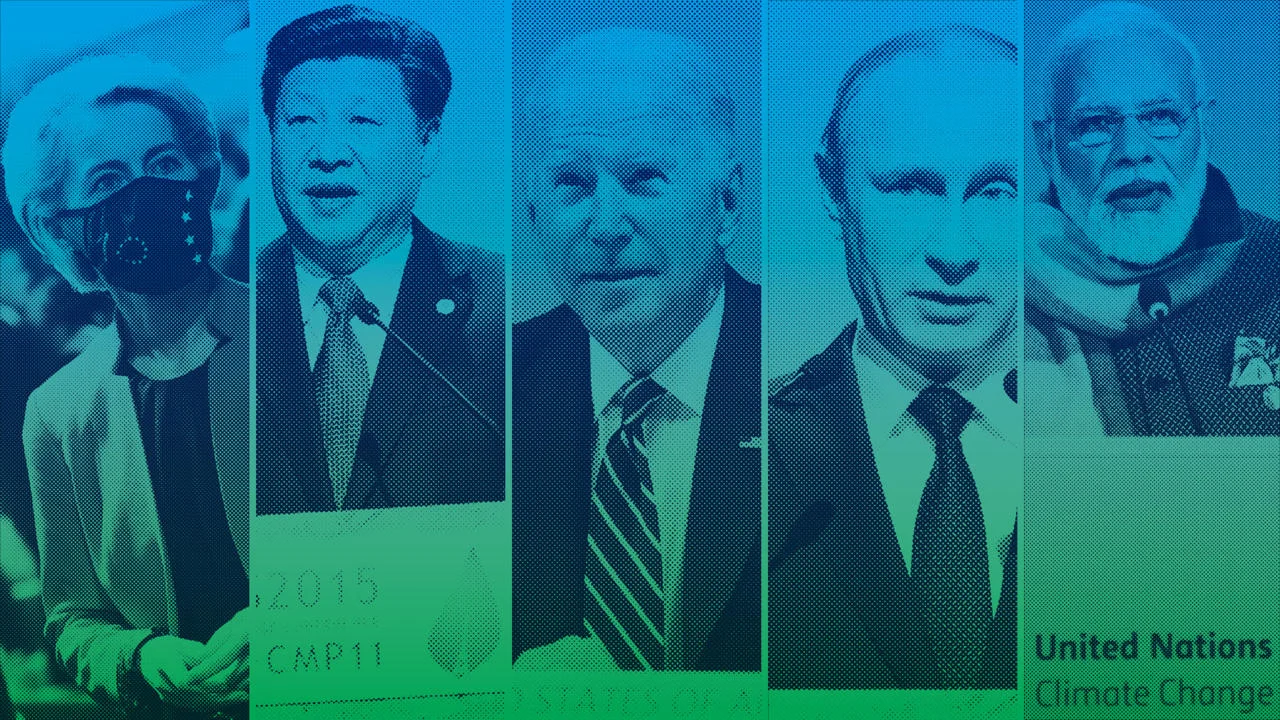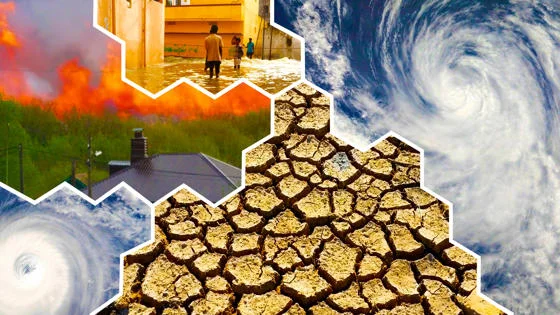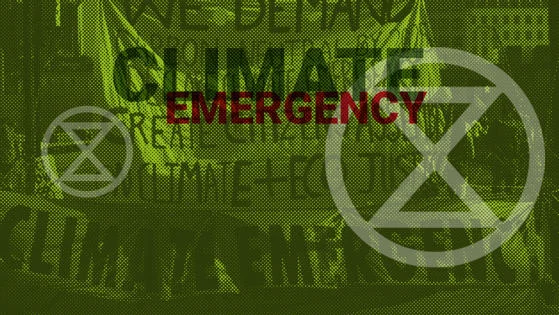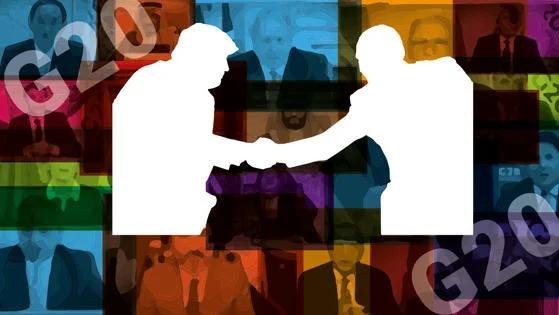What is the role of great powers in the international politics of climate change?

Contents
COP15 was held in Copenhagen in 2009, with the ambition of agreeing a post-Kyoto climate treaty. The EU, along with some developing countries, were demanding legally binding emission reduction targets to tackle the escalating crisis, but there was no consensus to be found. The conference was on the verge of collapse when the USA, represented by Barack Obama, brought together representatives from the so-called BASIC countries (Brazil, South Africa, India and China) to negotiate a non-binding accord - a commitment to work together in a more voluntarist form to strive towards emission reductions, though not in the legally binding way that had been demanded.
"This saved the conference from total collapse," Dr Robert Falkner, Associate Professor of International Relations at LSE told a virtual audience at a recent LSE Research Showcase event. "It also, most significantly, paved the way for the Paris Agreement in 2015, which is based on the same principles that were negotiated."
"But it also caused huge upset among other members of the UNFCCC (the United Nations Framework Convention on Climate Change), because this was a secretive deal negotiated on the side-lines - not very open, not transparent," Dr Falkner continues. "It seemed to many at the time that this was the beginning of a new formation of climate geopolitics, with the great powers coming together and negotiating before the rest of the world is asked to ratify what they have decided. This has provoked a lot of interest and also anxiety about the new reality of global climate politics."
What does this kind of power inequality do to the search for global environmental solutions and how does power inequality between states affect outcomes? These were the questions that prompted Dr Falkner, his co-editor Professor Barry Buzan and other contributors to put together an edited volume exploring Great Powers, Climate Change and Global Environmental Responsibilities.
A country that can harm the environment in a significant and globally relevant way will have a large amount of negative environmental power, which translates into veto power in the negotiations.
Environmental power in international relations
When considering what makes for a great power, a term traditionally used in areas of security or economy, scholars usually factor in two fundamental dimensions, Dr Falkner explains. The first is material power, which is rooted in economic clout and military strength. In an environmental sense, it comes from the control of natural resources and ecological systems, like forests, or of large industrial systems.
The second dimension is a social one. With the claim to be a great power comes the claim to be recognised by other powers as such, and that special recognition, and the right it grants a country to make decisions on behalf of others, is given in return for special duties or responsibilities in the international system.
The book’s authors also distinguished between two different uses of power in the environmental field. You might think of the more positive environmental power – the power to lead negotiations, to encourage cooperative solutions and provide strong leadership towards a sustainable future. But more often in fact states exercise negative environmental power – the ability to produce environmental "bads" like pollution or the destruction of ecosystems.
"A country that can harm the environment in a significant and globally relevant way will have a large amount of negative environmental power, which translates into veto power in the negotiations," Dr Falkner explains. "That’s exactly what happened with the United States and the BASIC powers at Copenhagen."
Paradoxically perhaps, [the EU's] environmental power is falling as it is moving towards more sustainable forms of economic growth and economic activity.
Who are the great powers in the environmental field?
There are a number of countries one can point to as having significant power in the environmental field.
The United States and China are two countries that would be considered global great powers in any field, and the environment is no exception. "What they do economically and politically will have an impact on environmental outcomes in virtually all environmental issue areas, from climate change to biodiversity, to chemical pollution to air pollution," Dr Falkner explains.
They also exert significant positive power. "The US and China have the widest power to wield - and they certainly use it - so when they cooperate and promote solutions, that will facilitate certain outcomes," he continues. Their cooperation, through a bilateral agreement, enabled the adoption of the Paris Agreement in 2015 and had a similar impact in the run up to COP26 meeting in Glasgow last year.
The European Union has a large economic footprint and is a consistent leader in the field, but the book’s authors raise a question as to its impact. "Paradoxically perhaps, its environmental power is falling as it is moving towards more sustainable forms of economic growth and economic activity," Dr Falkner notes. A declining negative environmental power seems to undermine its clout vis-à-vis other major powers. He adds, "The European Union now finds itself often in a position of a demandeur, a power that asks for solutions but with diminishing ability to broker a deal in international negotiations."
Many... powers still struggle with the notion of playing a more responsible 'great power' role in this area.
Russia controls vast amounts of fossil fuels, coal and oil, large forests and eco systems and exerts primarily a negative power. In a similar way, Brazil, Indonesia, India and others from the emerging economies are now playing more of a role with their expanding ecological footprint, but they have limited leadership.
Japan has always been considered an environmental power, due to its large ecological footprint – its economy still consumes vast amounts of resources – but it has over time retreated from the kind of environmental leadership it provided in the past.
The question of what would give these key players "great power" status has not yet been defined or accepted. "The US and China have come closest to being the widely recognised and self-conscious great powers in this field," Dr Falkner says. "The EU has an aspiration to play that role. Many other powers still struggle with the notion of playing a more responsible ‘great power’ role in this area."
Global environmental responsibilities
What are the special responsibilities that great powers take on in international relations, and do they apply in the environmental field? In international relations the way those responsibilities play out is known as Great Power Management (GPM), an informal institution that has existed at least since the 19th century when the Concert of Europe was the dominant form of managing international order, maintaining stability and peace.
Dr Falkner explains: "The idea is quite simply that great powers take on a kind of collective management role for the international system, and this gives rise to a legitimate form of domination, where the great powers act out of an ethic of responsibility –accepting they have to transcend their own national interests and act on behalf of the global collective good."
In return, countries are given special rights – for example permanent membership of the UN Security Council comes with a powerful veto – but they may also be asked to take on special responsibilities – peacekeeping operations in the security field, for instance.
The existing climate powers still act not as great powers in this area but as 'great irresponsibles'.
GPM has proved very difficult to establish in a formal way in the environmental field. Existing environmental responsibilities are mostly differentiated along North/South lines, rather than being based on the degree of power a country has. "This means that industrialised countries still take on special responsibilities, but many emerging economies that are in environmental terms much more powerful and impactful, are still resisting these special responsibilities, or struggling to come to terms with a demand to take them on."
There are also no special rights to be had in return, no recognition of special decision-making power. Great power forums, like the G7 and G20, only act in an informal way – they have not been recognised alongside the multi-lateral organisations like the UNFCCC. "There is an informal mini-lateralism at work, but it hasn’t translated yet into a formal GPM system," Dr Falkner says.
Is Great Power Management an inevitable destination?
It not widely agreed that moving towards a GPM system in this field would be the right thing to do, particularly amongst developing countries. But if the current multi-lateral system fails to deliver the solutions needed to address the climate crisis in a timely way, the book’s authors ask whether great powers will be called on to take on greater management responsibilities.
"The key question is whether these global powers will accept a raison de système for the global climate, or will they simply switch to a nationalist response that looks after their own raison d’état in this area?" Dr Falkner continues. "The existing climate powers still act not as great powers in this area but as 'great irresponsibles', to use Hedley Bull’s famous words."
Environmental issues are also not (yet) seen as systemically significant to international society; they haven’t yet become a threat to international order, peace and security that military threats are accepted to be.
However, the climate crisis is increasingly seen as a potential security threat, requiring a more securitised response. Dr Falkner concludes: "That does push climate issues and other environmental issues very much in the direction of great power management. It could, for example, mobilise a bigger role for the UN Security Council in this area – there have already been efforts to establish such a role, but those efforts are incomplete, that kind of securitisation has not happened yet."
Dr Robert Falkner was speaking to Louise Jones, Senior Communications Manager at LSE, as part of the LSE Research Showcase series in February 2022.
Download a PDF version of this article




